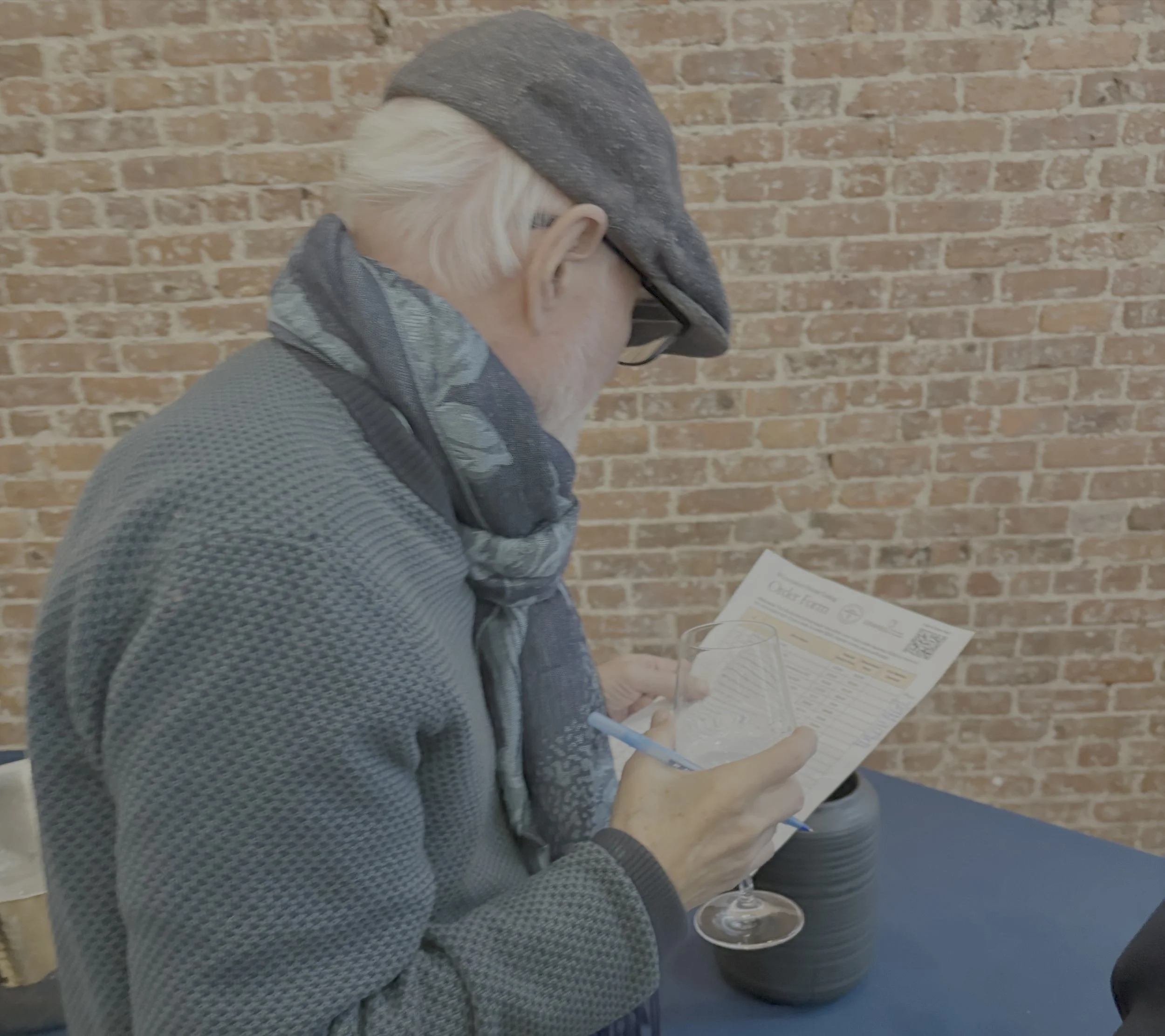All That Is Sacred In Wine
A few weeks ago, I had the good fortune to spend time in New York City, reconnecting with the world of wine and recharging my sense of purpose in it. I’ve always loved learning—forever a student—and during a tasting of some of the finest wines from Spain and Portugal, I found myself leaning in as someone described how Albariño grapes thrive in different soils. It was inspiring, but what truly stayed with me wasn’t in the glass.
An elderly couple—likely in their mid-80s—approached the tasting table with notebooks in hand and glasses ready. Eager, engaged, and clearly experienced, they were there to taste, to learn, to delight in the moment. I watched them, more than twice my age, and felt a deep respect. They’ve witnessed decades of change in wine (or alternatives to wine)—trends rising and falling—and still, they remain curious, drawn to the same threads of history, culture, and tradition that have defined wine since 6000 BC. That image stuck with me. I am such a dork and sneaked in a photo of him. So I could be reminded from time to time what this is all about for me.
Don’t get me wrong, I’m fascinated by how the world evolves. I even stepped into the wine-tech space largely to stay current with technology. Right now, I’m working through Jon Bonné’s The New French Wine—two massive volumes exploring everything that has changed (and is changing) in one of the world’s benchmark regions. It’s fascinating, but that elderly couple reminded me: some things don’t need to change.
Last night, I saw an ad on Instagram promoting CBD gummies as a modern alternative to wine—better sleep, no hangover. I’m not opposed to them; they serve their purpose. Earlier this year, while grappling with a painful loss, a gummy helped me sleep. But I have a hard time with the idea that a sweet little chewable can—or should—replace what’s sacred about wine.
Wine, when made ethically and consumed mindfully, can absolutely offer restfulness without regret. But more importantly, it invites presence. It invites conversation. It lingers. A slow sip of wine with a friend, or with my husband on the couch the other night, became its own kind of ritual. We unraveled the day, delighted in each nuance, paused to appreciate something beautiful. That’s not an experience a gummy can replicate.
The elderly man at that NYC tasting knows that. He’s wiser than me.
One of my favorite lines from Bonné’s book sums it up best:
“What remains true is that wine in France is still a pursuit that’s equal parts culture and agriculture. More than that, it is sacred.”

